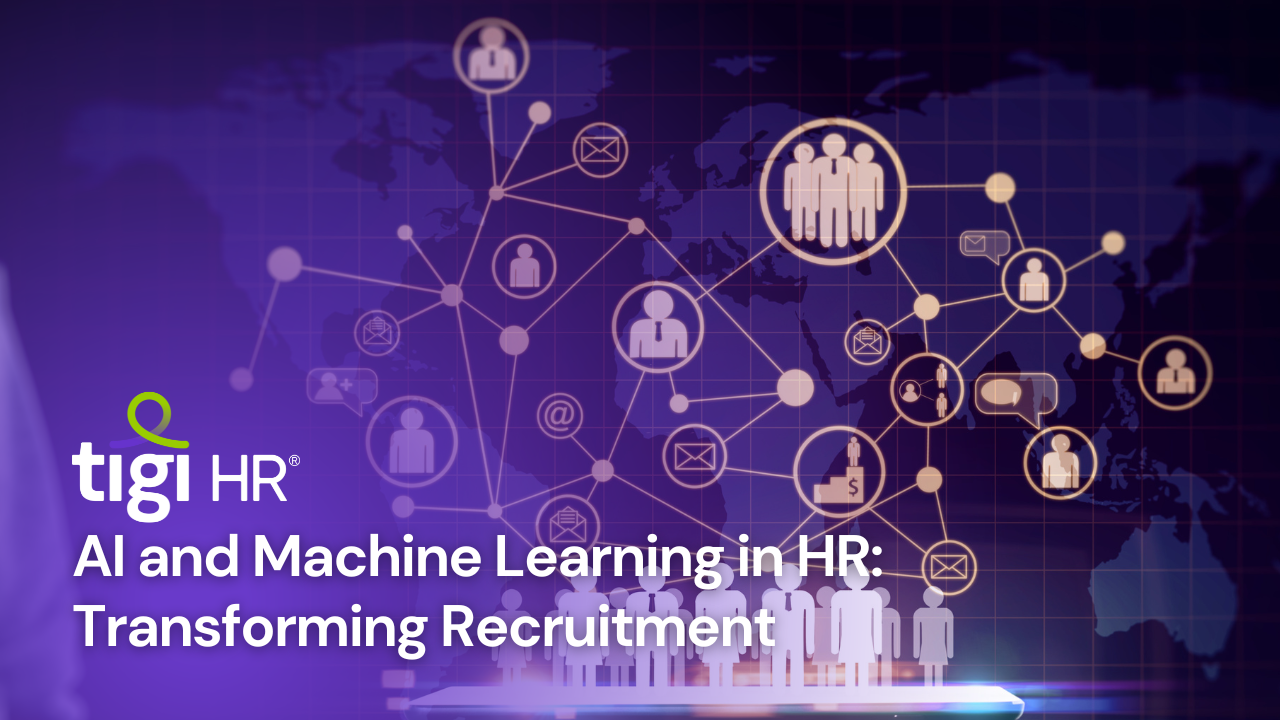The realm of Human Resources (HR) is undergoing a seismic shift with the integration of Artificial Intelligence (AI) and Machine Learning (ML) technologies. This transformation is most prominently witnessed in the recruitment process, where the utilization of AI and ML is streamlining and enhancing the way organizations find and select top talents. This article delves AI and Machine Learning in HR into how AI and ML are reshaping the recruitment landscape while emphasizing their benefits and implications.
Enhancing Resume Screening
One of the pivotal aspects of recruitment is the screening of numerous resumes to shortlist potential candidates. This task, once time-consuming and prone to human biases, is now being revolutionized by AI-powered systems. These systems employ Natural Language Processing (NLP) algorithms to analyze resumes, identify keywords, and assess candidates’ qualifications and experiences. By doing so, AI eliminates the need for HR personnel to spend hours reviewing each resume, allowing them to focus on more strategic aspects of recruitment.
Personalized Candidate Matching
AI and ML have paved the way for highly personalized recruitment experiences. With the assistance of predictive analytics, AI algorithms can compare a candidate’s skills, experience, and preferences against the job requirements and company culture. This results in better candidate-job fits and higher retention rates, as candidates are more likely to thrive in environments that align with their values and goals.
Efficient Sourcing through Chatbots
Chatbots, another AI application, have redefined candidate engagement and sourcing. These virtual assistants can interact with candidates in real-time, answering their queries, and guiding them through the application process. Additionally, chatbots can collect preliminary information from candidates, such as skills, experience, and location, which further aids in efficient candidate screening.
Data-Driven Decision Making
AI and ML are arming HR professionals with data-driven insights that significantly impact their decision-making process. By analyzing historical recruitment data, these technologies help identify trends, such as the most successful sources for quality hires or the stages at which candidates tend to drop out. Armed with this information, HR teams can optimize their recruitment strategies and allocate resources more effectively.
Reducing Bias and Enhancing Diversity
Bias in recruitment has long been a concern, potentially leading to unfair hiring practices. AI and ML can mitigate this issue by using objective criteria to evaluate candidates, thereby reducing the impact of human bias. Moreover, these technologies can help organizations diversify their workforce by identifying overlooked talent pools and promoting inclusivity.
Streamlining Interview Processes
Conducting interviews is a time-intensive task for both candidates and interviewers. AI-powered tools can assist in this phase by analyzing video interviews using facial and speech recognition technology. These tools gauge candidates’ non-verbal cues and communication skills, providing valuable insights to supplement traditional interview methods.
Predictive Analytics for Success
Predictive analytics, fueled by AI and ML, is a game-changer in HR. By examining past hiring data, these technologies can predict which candidates are most likely to succeed in a specific role. This not only aids in making informed hiring decisions but also contributes to reduced turnover rates and increased overall productivity.
Challenges and Considerations
While the integration of AI and ML in recruitment offers numerous advantages, it also brings about challenges. Data privacy and security concerns must be addressed, especially when handling sensitive candidate information. Additionally, there’s a learning curve associated with adopting new technologies, and HR professionals must be adequately trained to utilize AI tools effectively.
Conclusion on AI and Machine Learning
AI and Machine Learning are reshaping the landscape of HR recruitment by automating processes, improving efficiency, and enhancing decision-making. From personalized candidate matching to bias reduction and predictive analytics, these technologies offer transformative solutions that lead to more effective hiring practices. As organizations continue to embrace AI and ML, they must remain mindful of the ethical and practical considerations associated with their implementation. Ultimately, the fusion of human expertise and technological advancements will define the future of recruitment in the ever-evolving HR landscape.
How do staffing experts assist candidates in global job exploration?
Find Navigating International Markets with Staffing Experts
Staffing experts are essential for navigating the complexities of global job markets. With rising remote work and international career interest, experts offer tailored guidance, match skills to opportunities, provide legal support, and aid in cultural adaptation. Statistics show professionals value international experience for career growth, with increased demand for skills like problem-solving and critical thinking. Staffing experts are crucial in helping candidates succeed in global employment.
Find trusted recruitment agencies : Click here





